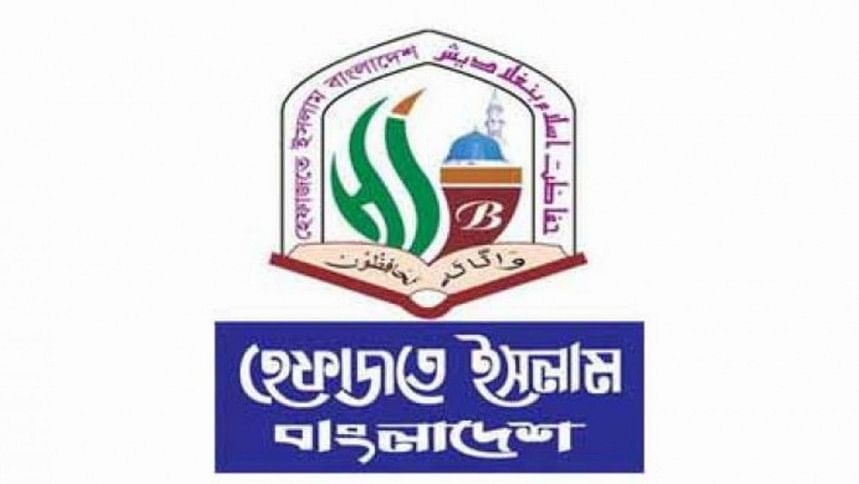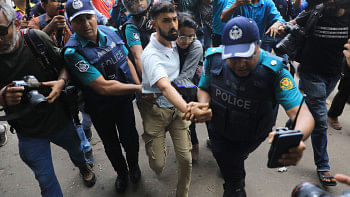Hefajat leaders demand release of arrested leaders in meeting with home minister

Top leaders of Hefajat-e-Islam today demanded that the government release its "innocent" leaders and activists arrested since March 25.
The Hefajat leaders including its amir, Junayed Babunagari, and Secretary General Nurul Islam Jihadi made the demand while meeting Home Minister Asaduzzaman Khan Kamal at the latter's Dhanmondi residence, meeting sources told The Daily Star.
The meeting that started around 8:15pm lasted for over two hours, Morshed bin Noor, son of Nurul Islam Jihadi, told The Daily Star after leaving the meeting.
He added that the meeting discussed various issues, including the release of detained Hefajat leaders and asking that its leaders and activists not be arrested.
A Hefajat leader said they also demanded that the government reopen all Qawmi madrasas.
There was no formal briefing to reporters from any side.
Despite repeated attempts, the home minister did not answer his mobile phone.
The government took a tough stance following Hefajat's violence spanning three days since March 25 in protest of Indian Prime Minister Narendra Modi's visit in Bangladesh. The violence surrounding the protest left at least 17 people dead and many others injured.
Hefajat has been under tremendous pressure from the government to restructure its central committee since the mayhem in late March, sources said.
At least 154 cases were filed against Hefajat men in the following days while around 1,230 people, including more than 50 top Hefajat leaders, were arrested, according to Police Headquarters data.
Following the recent crackdown on Hefajat, some of its leaders started trying to negotiate with the government in hopes of avoiding "arrest and harassment".
Hefajat's previous central committee was disbanded on April 25 amid a government crackdown on Hefajat leaders following the organisation's violence across the country in late March.
A five-member convening committee headed by Junayed and Nurul as its amir and member-secretary was formed at the time.
On June 8, Nurul Islam Jihadi announced the 33-member new central committee, a 16-member advisory committee and another committee called Majlish-e-Sura comprising nine members.
The new committee did not include Mamunul Haque and other leaders who are involved with different political parties or are in jail on charges of being involved in the violence in late March.
In the new committee Junayed Babunagari and Nurul Islam Jihadi continued to be the amir and secretary general of the Islamist organisation.
In November 2020, around two months after the death of Hefajat chief Shah Ahmad Shafi, Babunagari and Nur Hossain Kasemi were named as the new amir and secretary general respectively.
Nurul Islam was made the secretary general after Kasemi died in December.
The government allegedly had influenced while the formation of the new committee, making sure the individuals involved in political parties associated with the BNP are axed, said Hefajat leaders.
The Islamist organisation first made headlines in 2009 by protesting a draft national women development policy that provided equal inheritance rights to women.
It is often said that hostility between Hefajat and the AL government turned amicable through closed-door negotiations amid a government crackdown after Hefajat's mayhem in the capital in May, 2013.

 For all latest news, follow The Daily Star's Google News channel.
For all latest news, follow The Daily Star's Google News channel. 



Comments